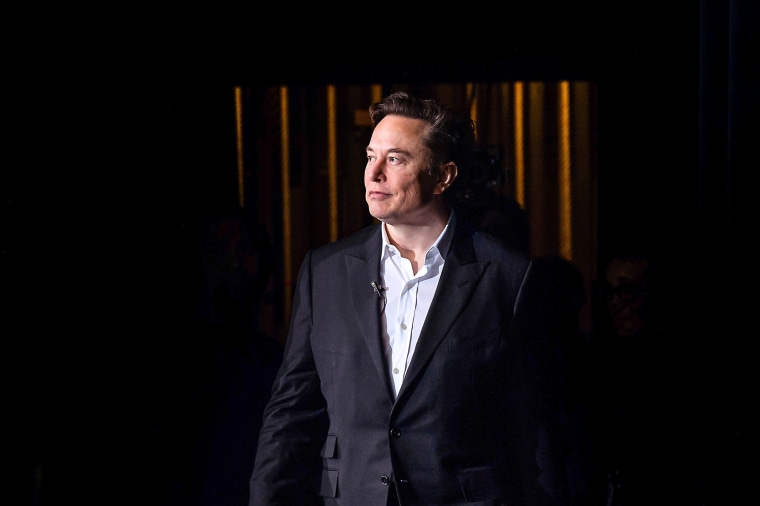Elon Musk framed his takeover of Twitter as a bid to maximize free speech on the social media site, pledging that as long as speech wasn’t violating a country’s laws, it would be safe on his platform. But on Thursday, Musk suspended the accounts of several prominent national journalists, including reporters from CNN, The New York Times and The Washington Post, for expressing legal speech.
Musk said the reason he suspended the journalists was for violating a new policy on doxxing, which he had instituted just one day earlier. Under that policy, Musk suspended an account that tracked the movement of his private jet, as well as other accounts that tracked the locations of other jets. Musk claims that the subsequent suspension of journalists' accounts was due to their linking to banned jet tracking sites. But at least one suspended journalist says they did no such thing, and it also appears that some of them were simply engaged in reporting on Musk's new policy (as opposed to deliberately trying to draw attention to tracker sites). Musk deemed the location data “assassination coordinates.”
The real issue is Musk’s ad hoc, arbitrary policy-making.
Musk’s views that various forms of doxxing should be prohibited on Twitter isn’t unreasonable. Doxxing — publishing someone’s personal identifying information, like their home address — is an intrusive form of bullying that can easily lead to in-person harassment and danger. (It's worth nothing that while publicly displaying the location of Musk’s jet — and aircraft in general — through these kinds of trackers raises privacy concerns, the data to do so is publicly available and legally collected.)
The real issue is Musk’s ad hoc, arbitrary policy-making. He has revealed that he is not the free-speech absolutist that he promised he would be. That’s not surprising for anyone who pays attention to the deeply thorny issue of regulating speech online. But the point is that he is randomly departing from free speech principles that he has articulated over and over — and doing so in a manner that probably not-so-coincidentally involves targeting people he dislikes or disagrees with.
Let’s grant that Musk’s evolution away from totally unregulated speech online is a good thing. At the helm of a major social media platform, Musk is now realizing that some regulation of speech on social media is needed to make it functional and prevent it from becoming a platform for potentially dangerous behavior.
But what is still concerning is that his forays into regulation appear whimsical and often instituted only after he personally feels threatened by something. (Witness Musk threatening to permanently ban impersonators after people began impersonating him en masse, another exception to his free speech principles.) Based on the information we have so far, it looks like the suspended journalists were not given any warning or direct explanation for why they were suspended for linking to publicly available information that had been fine to share on Twitter until a day prior. It’s also unclear if his allegation that they revealed his exact location is accurate, even if they linked to a jet tracker. It seems his policy became extremely strict overnight, and doesn’t account for the clearly journalistic intention of linking to the prohibited trackers.
Another sign of how thoughtless this new policy is: In a bid to make it backed by the optics of popular mandate, Musk did another one of his faux referenda where he surveys all of Twitter on a policy question, aiming to get the outcome he wants because he’s so deeply embedded in networks of fans and right-wing activists online at this point. This time he asked how quickly he should un-suspend the accounts that he says doxxed him. But after seeing he was not getting the results he wanted — since a plurality of respondents favored instant reinstatement of the suspended journalists’ accounts — he declared the survey defective. He’s now running another one.
Once again this is ... not responsible policy-making. Twitter is not the free speech zone Musk said it would be, nor is it a place with a discernible value system regulating speech. The rationale for Musk’s exceptions to free speech are unpredictable, and the punishments seem swift and personal. It’s also not hard to see how Musk has a personal interest in and capacity to use his capricious decrees to target influential reporters that criticize him and threaten his business reputation. And Musk’s appetite for granting amnesty to old right-wing accounts that violated Twitter’s rules while booting prominent left-leaning accounts suggests that Musk views the platform increasingly as a tool for right-wing activism.
A platform that serves as critical informational infrastructure for the world like Twitter should have clear terms of service, crafted by a group of people who demonstrate a sincere commitment to serving the public interest. At the very least, its rules should be managed through a rigorous, standardized organizational process and upheld through clearly articulated and consistent enforcement. But over the longer term, we as a society need to figure out how to make these companies' algorithms and codes for regulating speech transparent; highly permissive of unpopular speech while protecting people from harassment; and accountable to institutions that serve public interests rather than private ones.

